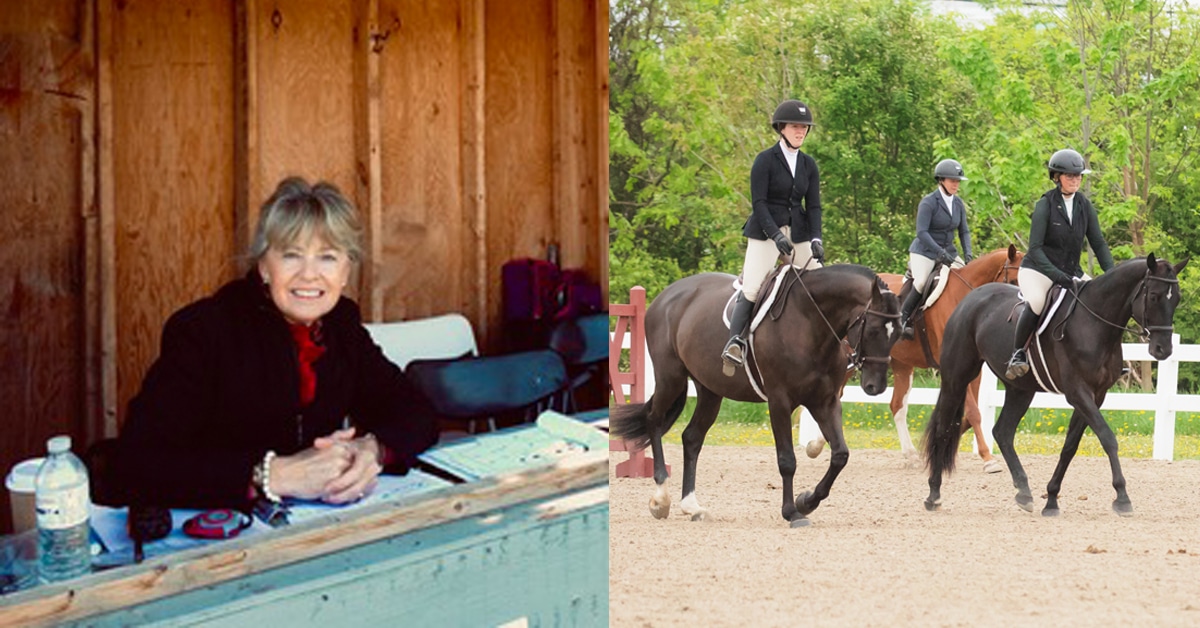Setting young horses up for a good life in their interactions with humans requires consideration of their basic needs as well as their future use. Below is a recap of a presentation from the 19th International Equitation Science (ISES) Conference by Danish researcher Janne Winther-Christensen, who examined findings from current research in relation to three key developmental periods:
(1) The pre- and early post-natal period,
(2) the period around weaning, and
(3) adolescence.
The presentation focussed on how experiences during these early-life periods can affect fearfulness, learning and trainability, reactions to humans and social behaviour in the adult horse.
For young mammals, the mother is one of the most important aspects of their environment. Research on other mammalian species has documented both pre- and early postnatal maternal effects on behavioural development and stress sensitivity of the offspring. For example, stress in certain periods during pregnancy can increase stress sensitivity in the offspring, even in adulthood. Further, the level and quality of maternal care during early post-natal life can have lasting effects on learning performance, social behaviour and stress reactions in the adult offspring.
In equines, the mare plays a crucial role for the behavioural development of the foal. The knowledge on prenatal stress effects in horses is still rudimentary due to a lack of studies, although the topic is highly relevant considering management practices for pregnant mares and the use of recipient mares for embryonic transfer. More is known about post-natal effects in horses.
Maternal handling
In the early post-natal period, the foal learns about the environment from observing the mare’s reactions. Research has shown that gentle handling (brushing and hand-feeding) of mares for 15 minutes on days 1-5 post-partum caused their foals to react more calmly towards humans and human handling compared to control foals of unhandled mares. Similar effects of maternal handling were found when carried out with six-month-old foals; however, the effects were less pronounced.
In combination, these studies suggest that horses are particularly sensitive to maternal transmission of behaviour early in life. It has also been shown that mares transfer habituation (diminishing of response) to frightening objects to their foals: Short (10 min) weekly demonstration sessions by habituated mothers led to significantly reduced fearfulness in foals when they were later exposed to novel objects on their own, compared to control foals. Since fear reactions are a main cause of human-horse accidents, there is a large potential for reducing the frequency of accidents through systematic maternal transmission of habituation.
By initiating appropriate habituation training (including via the mare) at an early age, it will likely be possible to both increase safety and benefit training outcomes.
Other studies have shown that fearfulness can be identified at an early age in horses and determined a positive association between curiosity and learning performance in young horses. This means that by initiating appropriate habituation training (including via the mare) at an early age, it will likely be possible to both increase safety and benefit training outcomes.
The physical and social environment is generally of key importance for the developing horse, both before and after weaning. All horses, and in particularly foals and young horses, need free movement, an appropriate roughage-based diet and social contact to other horses to ensure their normal physical and behavioural development. Particularly, play behaviour is important for normal development: foals and young horses are strongly motivated to play, and in the wild, foals that play more have a greater survival chance. Further, young horses are easier for humans to handle if their social needs are met, providing an additional benefit to allowing horses to express their naturally motivated social behaviour.
Weaning
Weaning is a major event for the young horse and should preferably take place at or after the natural weaning age of around 9-10 months of age. Under domestic conditions, weaning often takes place earlier, typically at 4-7 months of age.
Abrupt weaning is related to an increased risk of development of stereotypies such as cribbing.
Weaning has been associated with mental, physical and nutritional stressors that are of welfare concern. For example, abrupt weaning is related to an increased risk of development of stereotypies such as cribbing. Thus, there is a need to understand the potential long-term impact of weaning, and whether stressors associated with early weaning have detrimental effects on the adult horse.
The fewest stress responses appear to occur when foals are introduced to a fat- and fibre-rich diet prior to weaning, weaned gradually and allowed to have social contact with other foals and/or older horses at weaning.
After weaning, young horses should preferably be kept in mixed age groups, or at least with a few older horses present in the group, as this was found to be beneficial for their social behaviour in terms of lowered agonistic interactions and more affiliative interactions. Some studies suggested that weaning and adolescence provides a window of opportunity for behavioural modification; however, in horses there appears to be no solid evidence for the existence of periods that are particularly sensitive for facilitation of a good horse-human bond. Rather, the affiliative (the need to form social and emotional bonds) qualities of human-horse interactions may be more important than at which age the interactions occur.
Foals and young horses are strongly motivated to play, and in the wild, foals that play more have a greater survival chance.
As described above, establishing a positive human-mare relationship may be an important key to durably enhance the manageability of foals. Of equal importance is establishing clear and consistent interactions with the foals themselves and as far as training is concerned, to use techniques that fully align with learning theory.
The emerging research field in relation to positive mental states in animals will help further illuminate how a good life for the young horse can lead to stress-resilience, reduced fearfulness, a good human-animal bond, and improved performance, which paves the way for a good adult life.
The Latest









